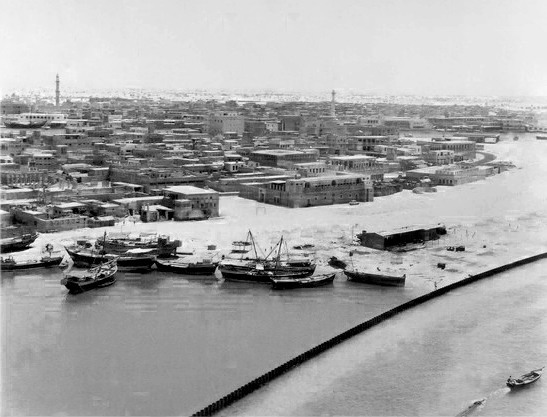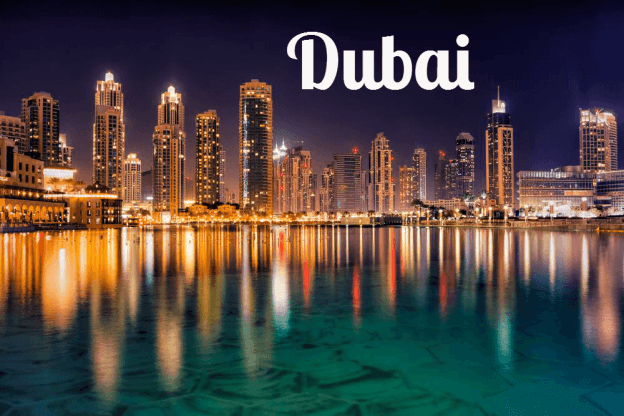Dubai is the second largest as well as the most populated emirate of the UAE on the Arabian Peninsula. Dating back to 3,000 BC, Dubai’s history is as interesting and varied as the destination itself. From a small fishing village, Dubai has come a long way to establish itself as one of the world’s most prominent business and trade centers. Mentioned below will provide you with a glimpse of different phases of Dubai’s interesting history, beginning from its early settlements.
Dubai History Facts
1. Early Life: From the 3rd century AD, Dubai was believed to be a part of a pre-Islamic community led by the Sassanian Empire. Later in the 7th century AD, the Umayyad Caliph Group occupied the region and introduced the religion, Islam here. But the archeological excavations revealed from the Al-Qusais depict the existence of a human settlement in the region as early as 8000 BC. Further, the area has been found mentioned in the ancient book ‘Mojam Ma Ostojam men Asmae Al Belaad Wal Mawadhe’ tracing back to 1095 AD. The first European to settle here was Portuguese, who were later followed by French, Dutch and eventually British in the 18th century.
2. Pearl Trading Centre: Dubai’s modern history is largely attributed to Al-Falasi clan – a part of the Ban Yas tribe led by the Maktoum family, who settled down here at the Creek’s mouth in the early part of the 19th century. This, in turn, marked Dubai’s prominence as a major fishing and pearling center in the 19th as well as 20th centuries. As a result of the thriving pearl industry, the Bedouins upped their lifestyle and shifted their base from desert to coast. But the peal industry in Dubai collapsed due to several factors such as the Great Depression, First World War and the invention of a cultured pearl.
3. Local Disputes: During the 1940s, some tensions and wars occurred between Dubai and Abu Dhabi, which even led the British to create a barrier zone between these two emirates.
4. Major Trading and Export hub: The turn of the 20th century saw Dubai as a significant port, with the souk on the Deira region flourishing with hundreds of shops. However, in the 1950s, a split began to develop in the creek probably due to a large number of ships here. HH Sheikh Rashid bin Saeed Al Maktoum, the then ruler of Dubai, resolved this issue through an ambitious, visionary project that eventually strengthened Dubai’s position as a major port city. Apart from these, he was also instrumental in the development and implementation of several projects such as Al Shindagha Tunnel, Dubai World Trade Centre and Dubai Drydocks.
5. Discovery of Oil: An important milestone in Dubai’s history was the discovery of oil in 1966 at Dubai’s Fateh Oil Field. Upon the first export of oil in 1969, the economy of the emirate began to flourish. From the creation of currency and the establishment of the largest harbor to the development of a strong infrastructure network, the city underwent several major transformations with the revenue raked in from the oil and gas.
6. Formation of UAE: When the British left the Arabian Gulf in 1971, Dubai and Abu Dhabi, along with five other emirates, united to form the United Arab Emirates. As a result of several negotiations and certain conditions, it was decided that Dubai and Abu Dhabi will have major control over the country while having veto power to decide upon matters of national significance.
7. The first president of UAE: Soon after the formation of the UAE, HH Sheikh Zayed bin Sultan Al Nahyan became the president of the UAE, and he held the position till he died in 2004. Under the leadership of Sheikh Zayed and Sheikh Rashid bin Saeed Al Maktoum, the UAE emerged into one of the world’s richest countries.
8. Persian Gulf War: The 1990’s Persian Gulf War took a toll on Dubai’s economic climate, as the investors withdrew their huge sum of money from banks in the emirate speculating dubious situations. But in the mid-1990s, the trade communities from Kuwait and Bahrain shifted their base to Dubai. Moreover, the tremendous increase in oil prices posts the Persian Gulf War helped Dubai to overcome the unstable economic conditions.
9. Dubai in the 1990s: In the 1990s, Dubai devised and implemented strategic plans to augment its popularity as an internationally recognized tourist destination. Burj Al Arab, the world’s only seven-star hotel, was opened in 1999.
10. Today’s Dubai: Dubai now proudly stands as a premier business and tourist destination offering highly sophisticated infrastructure, best in class shopping, dining and leisure facilities, awe-inspiring skyscrapers including Burj Khalifa – the world’s tallest building, and most of all, crime-free and expat-friendly environment.









This blog is for history lovers or who is eager to know about the emergence of the most luxurious country in the world, Well the following blog will make once travel through war to the oil discovery.